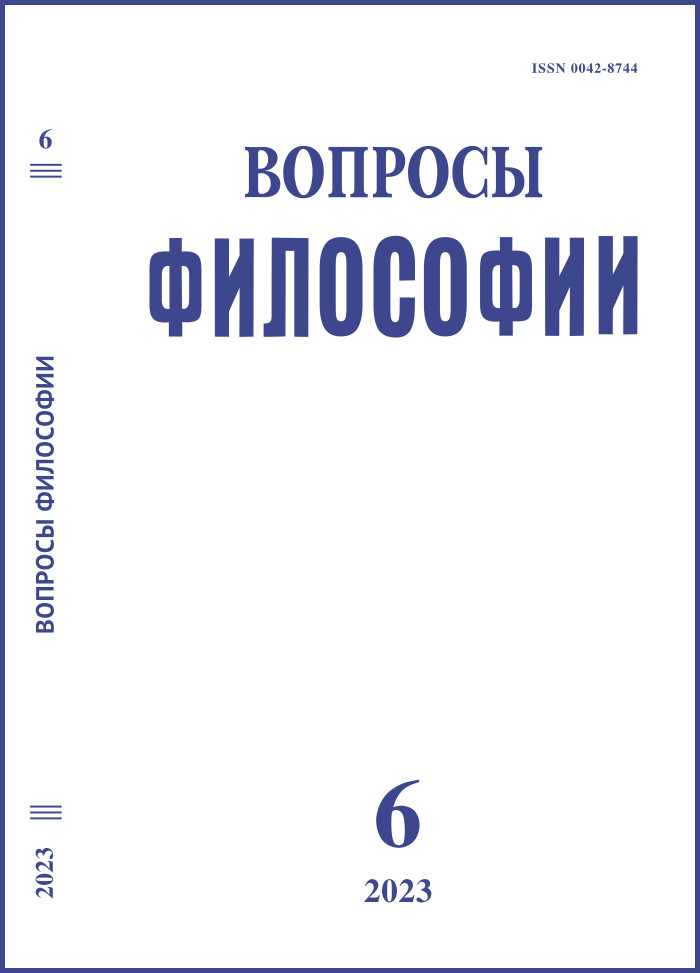Transcendental-Phenomenological Analysis of Consciousness: Receptivity and Spontaneity as Conditions for the Possibility of Experience
DOI:
https://doi.org/10.21146/0042-8744-2023-6-104-115Keywords:
transcendental philosophy, phenomenology, conscious experience, the preconscious, subjectivity, receptivity, spontaneity, transcendent.Abstract
The study is devoted to the transcendental-epistemological problem of the genesis of consciousness and is aimed at identifying the conditions for the possibility of cognition, depending on which the structure of conscious in general and the structure of specific objects are formed. The transcendental-phenomenological reflection that deals with the immanent in consciousness does not allow solving the problem of understanding cognition as the relationship of the cognizing subject to things that exist independently of him. The analysis of the conditions for the possibility of cognition as a relation of subjectivity to other, proposed in the article, shows how receptivity (rethought taking into account the criticism of the concept of “sensory givenness”) and the spontaneity can provide the emergence of consciousness and cognitive processes of the conscious level. This offers the basis for opening the complex structure of subjectivity, including not only the conscious, but also the preconscious level that influences the organization of consciousness. Considering the transcendental nature of consciousness, but not implying its absolutization, this approach opens the prospects of solving the problems in the philosophy of consciousness, including the aspects of the “hard problem”.

